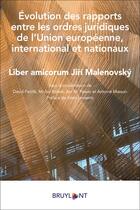-
Nombre de pages : (-)
-
Collection :
(-)
-
Genre :
(-)
-
Thème :
Non attribué
-
Prix littéraire(s) :
(-)
Résumé:
The past decade has witnessed change in the ways judges for the Court of Justice of the European Union and the European Court of Human Rights are selected. The leitmotif has been securing greater professional quality of the judicial candidates, and, for this purpose, both European systems have... Voir plus
The past decade has witnessed change in the ways judges for the Court of Justice of the European Union and the European Court of Human Rights are selected. The leitmotif has been securing greater professional quality of the judicial candidates, and, for this purpose, both European systems have put in place various advisory panels or selection committees that are called to evaluate the aptitude of the candidates put forward by the national governments. Are these institutional reforms successful in guaranteeing greater quality of the judicial candidates? Do they increase the legitimacy of the European courts? Has the creation of these advisory panels in any way altered the institutional balance, either horizontally within the international organisations, or vertically, between the respective organisation and its Member States? Above all, has the spree of 'judicial comitology' as currently practised a good way for selecting Europe's judges?
These and a number of other questions are addressed in this topical volume in a comparative and interdisciplinary prospective. The book is structured into two elements: first, how the operation of the new selection mechanisms is captured and analyzed from different vantage points, and secondly, having mapped the ground, the book critically and comparatively engages with selected common themes, examining the new mechanisms with respect to values and principles such as democracy, judicial independence, transparency, representativeness, and legitimacy.
Donner votre avis
















